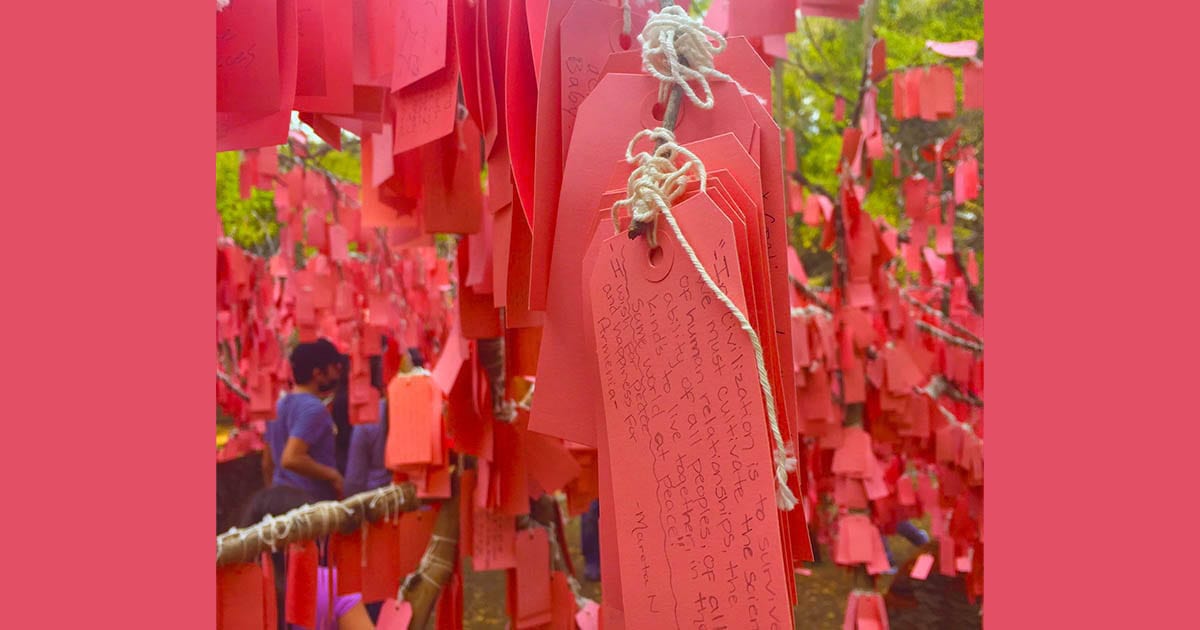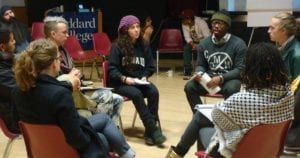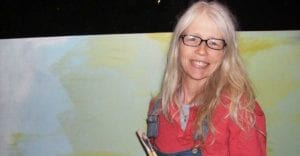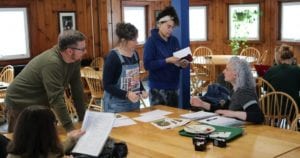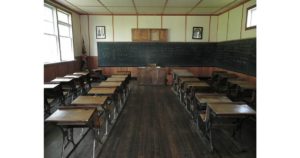Coming Full Circle
I first wrote Blue Moon Over Memphis, my Noh Drama about Elvis Presley, in 1993 while I was a graduate student at Brown University. I took a class in Japanese Theatre and found myself drawn to the Noh because it was so different from anything I had ever seen. Noh dramas are based on stories that are well known to the audience and they lack most of the dramatic conventions we expect in a play in the west, such as plot, action, or character development.
I began to wonder how I might bring this meditative form of drama into the American theatre, which is so dependent on story, action and realism. I kept asking myself what story did we have that everyone would know—and know so well that I wouldn’t have to tell it? In most Noh plays, there is the appearance of a ghost of a famous dead person and I wondered who that character might be in America. The Noh is also a form of musical theatre that incorporates classic Japanese poetry. What music and poetry traditions exist in America that are known in the same way that Japanese audiences know the poetry and music of Noh?
I found my answer in pop culture and in Elvis Presley. At the time, Elvis ghost sightings were being reported weekly in the nation’s tabloids; it was clear to me that this was a ghost Americans wanted to see! Everyone knows the Elvis story. Everyone knows his songs—even my 88-year old mother and my Eskimo friend who is a seal hunter in the Bering Sea. Elvis, it turns out, is the perfect Noh subject.
My goal with Blue Moon Over Memphis, in its first incarnation, was to figure out how to make the Noh form work in an American context. I realized very quickly that I couldn’t simply lift the conventions of Noh and tack them on to the Elvis subject—I had to adapt and change them. Noh forced me to break down the subliminal exchange that is taking place between the stage and the audience, on a moment-to-moment basis. I had to examine each convention used in the Noh for what it was designed to achieve for the 14th century Japanese audience and then find some equivalent in 20th century American culture.
For example, I knew that an American audience would wrongly identify the waki as the protagonist because the waki is the first to enter. (The waki is the secondary character in a Noh drama; s/he is usually a priest or a pilgrim, who journeys to a holy place and encounters the ghost of the shite, the lead character.) In order to accommodate this expectation I had to give my waki a protagonist-like journey, something that would not occur in a Noh play.
The Noh drama also makes use of a series of “gestures” that are known to the audience. It didn’t make sense to use them in my play, however, because they would confuse an American audience who wouldn’t know what they mean. They also would not reveal anything about Elvis who had plenty of his own gestures to draw on. Conversely, it made perfect sense to use the traditional “Noh walk” (a stylized form of walking that makes the actor look like s/he is floating above the ground) and the circular movement patterns of Noh dance because these conventions communicated that this was not going to be a realistic play, that the characters were otherworldly, and that time and space were going to operate according to a different set of rules.
On the musical front, I threw out the Noh instruments, deconstructed Elvis music and played it on a sound system; the Elvis wiggle, and other iconic dance movements were slowed down and abstracted, in order to adapt to the graceful aesthetic of Noh.
Today, 20 years later, I have written another version of Blue Moon Over Memphis, in close collaboration with Rick Emmert, which is being performed by Theatre Nohgaku using traditional Noh conventions. In this version, I didn’t have to do any translation for the audience. I didn’t twist the form to meet American expectations, nor did I have to find cultural equivalents for the play to make sense. The electronic music is out; in its place is an orchestration for traditional Noh instruments. The choreography will include traditional Noh dance and gestural conventions. Because there is no “translation” taking place, the script has become more economical, and in some ways, more poetic and heightened.
Writing Blue Moon Over Memphis has been like going on a long, extended cultural exchange. It has required a deep confrontation with the principles of the dramatic arts. I learned a great deal about the Noh, but I also learned a great deal about the American theatre and the principles of realism. Noh revealed new things about the subject of my play, as well. I gained insights about Elvis, American pop culture, celebrity culture and loneliness by putting Elvis through the Noh ringer.
And so, from the Japanese to the American back to the Japanese. I’ve come full circle.
Blue Moon Over Memphis was presented in Tokyo, Japan in the spring of 2015 and will begin touring internationally in 2016.

